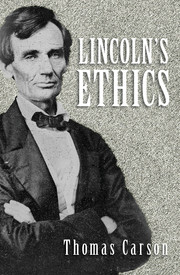Book contents
- Frontmatter
- Dedication
- Epigraph
- Contents
- Detailed Contents
- List of Maps and Figures
- Acknowledgments
- How This Book Came to Be
- 1 Introduction
- PART ONE LINCOLN THE POLITICIAN AND COMMANDER IN CHIEF
- PART TWO LINCOLN'S MORAL CHARACTER
- 7 Lincoln's Virtues
- 8 Other Salient Features of Lincoln's Character and Personality
- 9 Lincoln's Marriage and Family Life, and What They Reveal about His Character
- 10 Was Lincoln a Racist?
- 11 Conclusion
- Bibliography
- Index
- Plate Section
10 - Was Lincoln a Racist?
from PART TWO - LINCOLN'S MORAL CHARACTER
Published online by Cambridge University Press: 05 May 2015
- Frontmatter
- Dedication
- Epigraph
- Contents
- Detailed Contents
- List of Maps and Figures
- Acknowledgments
- How This Book Came to Be
- 1 Introduction
- PART ONE LINCOLN THE POLITICIAN AND COMMANDER IN CHIEF
- PART TWO LINCOLN'S MORAL CHARACTER
- 7 Lincoln's Virtues
- 8 Other Salient Features of Lincoln's Character and Personality
- 9 Lincoln's Marriage and Family Life, and What They Reveal about His Character
- 10 Was Lincoln a Racist?
- 11 Conclusion
- Bibliography
- Index
- Plate Section
Summary
Lincoln was an extremely good human being in many important respects. However, some claim that he was a racist. I turn now to this criticism of his character. Because my conclusions are complex and cannot be stated simply, it will be helpful to begin by summarizing them.
Was Lincoln a racist? The short answer is that it depends on what we mean by racism and what times in his life we are talking about.
Racism is a contested concept that is defined differently by different people. The most salient definition for understanding Lincoln's time and place is that racism is the belief that certain races of people are inferior to others and that it is permissible for members of superior races to exploit and enslave members of inferior races. Most defenders of American slavery in the nineteenth century held this belief. Two other important definitions are the following: “racism is racially motivated ill will toward members of a certain race of people,” and “racism is racially motivated indifference to the welfare of members of a certain race of people.” Being a racist in any of these three senses is a serious moral failing. It is clear that Lincoln was never a racist according to any of these three definitions. He never thought that certain races were justified in exploiting or enslaving other races of people, and he was never hostile to or indifferent to the welfare or interests of blacks or other races. There is considerable evidence to the contrary.
Racism is also sometimes defined as the belief that certain races are morally or intellectually superior to other races. Being a racist in this fourth sense is a matter of having certain beliefs. It is debatable whether mere beliefs can constitute traits of character, and it is also unclear whether or not Lincoln was a racist in this fourth sense.
- Type
- Chapter
- Information
- Lincoln's Ethics , pp. 335 - 401Publisher: Cambridge University PressPrint publication year: 2015



